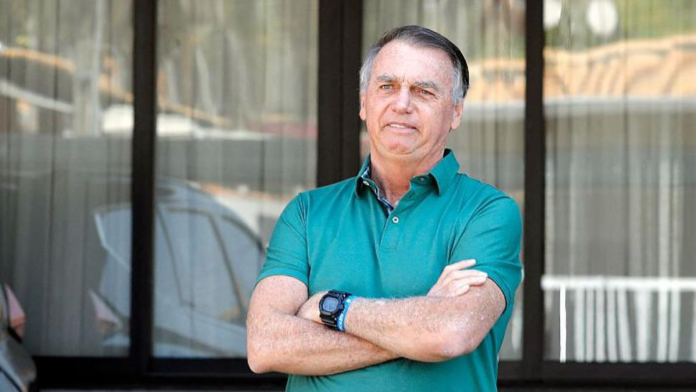Brazil’s former president Jair Bolsonaro has been sentenced to 27 years and three months in prison after being found guilty of plotting a military coup. The verdict was handed down by a panel of five Supreme Court justices in a case that has shaken the nation. Four of the judges voted to convict him, while one dissented and called for acquittal.
The court ruled that Bolsonaro was guilty of leading a conspiracy aimed at clinging to power after losing the 2022 election to Luiz Inácio Lula da Silva. Alongside the prison sentence, Bolsonaro has also been barred from running for public office until 2033.
The sentencing comes after months of hearings, investigations, and public debate. Prosecutors argued that Bolsonaro had worked with allies and military figures to undermine Brazil’s democracy. According to the justices, this went beyond political speech and turned into an organized plan to overturn the election results.
The decision marks one of the harshest penalties ever handed to a political leader in the country’s modern history. Legal experts say appealing the ruling will be difficult, as normally at least two justices need to vote for acquittal in order to allow an appeal to proceed.
Charges and Evidence Against Him
Bolsonaro was convicted on five charges linked to his attempts to stay in power after losing the vote. Prosecutors said the conspiracy was not only about spreading doubt but also about pushing military commanders to back a coup.
Bolsonaro coup trial puts Justice Alexandre de Moraes under global spotlight
Evidence presented in court showed that he had proposed an illegal plan to stay in office. Judges also heard that he was aware of discussions about assassinating Lula, the vice-presidential candidate, and even a Supreme Court justice.
Seven of his closest allies were convicted as well. They included senior military figures such as two former defense ministers, a former spy chief, and a former security minister. The justices said these men had played active roles in plotting with Bolsonaro.
The alleged plot reached its peak on January 8, 2023, when thousands of Bolsonaro’s supporters stormed government buildings in Brasília. The court ruled that the violent unrest was the direct result of his conspiracy. More than 1,500 people were arrested after order was restored.
Justice Alexandre de Moraes, who oversaw the trial, said Brazil had narrowly avoided sliding into authoritarian rule. He warned that the plan could have taken the country back to the dark years of dictatorship. Justice Cármen Lúcia, who gave the decisive guilty vote, compared the attempted coup to a “virus” that threatened to spread through society and destroy democracy from within.
The only dissenting judge, Luiz Fux, spoke for 11 hours defending Bolsonaro. He said the evidence was weak and insisted the accusations did not prove guilt. However, the majority ruled otherwise, sealing a conviction that many in Brazil see as a turning point.
Political and Global Reactions
The sentencing has sparked strong reactions both inside Brazil and abroad. Bolsonaro’s defense lawyers called the punishment “absurdly excessive” and announced they would file appeals. They also argued that he should remain under house arrest instead of being sent to prison. Currently, he is under house arrest, as the court deemed him a flight risk.
🔥 Eduardo Bolsonaro warns Trump ready to unleash tougher sanctions on Brazil
Bolsonaro himself did not attend the sentencing hearing. In the past, he has dismissed the trial as a “witch hunt,” claiming it was designed to block him from running in the 2026 election. He was already banned from public office on other charges.
International voices have also weighed in. U.S. president Donald Trump expressed surprise at the verdict and compared it to his own legal battles. Meanwhile, U.S. Secretary of State Marco Rubio criticized Brazil’s Supreme Court ruling and threatened to “respond accordingly.”
Brazil’s foreign ministry reacted strongly, posting that such threats “will not intimidate our democracy.” Officials emphasized that the conviction was based on evidence and the rule of law.
At 70 years old, Bolsonaro now faces the possibility of spending the rest of his life behind bars. His trial has reminded many Brazilians of the country’s painful history under military rule. Judges stressed that this chapter showed the dangers of political groups refusing to accept democratic outcomes.


